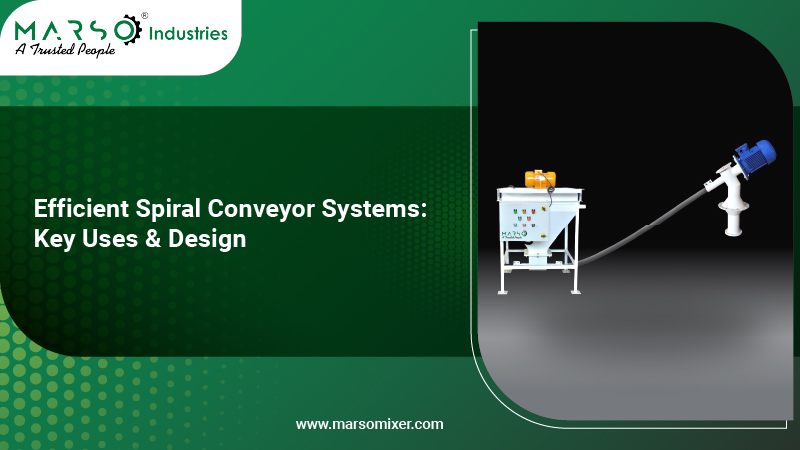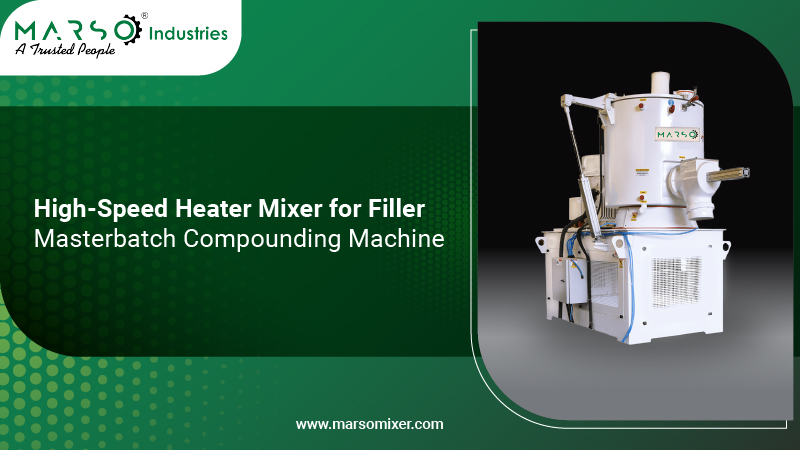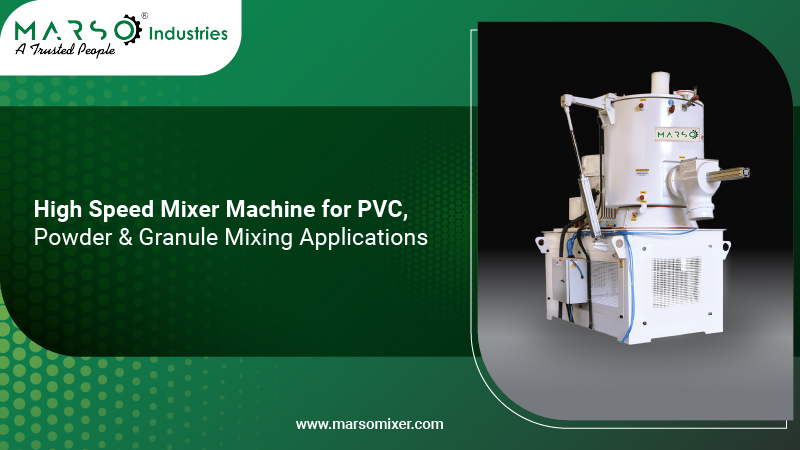
Automatic Raw Material Handling System: A Comprehensive Guide
December 20, 2024
Industrial High-Speed Mixer for PVC Compounding
January 23, 2025Stainless steel silos have become indispensable in the food and beverage industry, offering unmatched durability, hygiene, and versatility. These storage solutions play a critical role in maintaining product quality, streamlining operations, and complying with stringent industry standards. In this blog, we’ll explore the importance of stainless steel storage silos, their key benefits, applications, and why we are the preferred choice in the food and beverage sector.
What Are Stainless Steel Silos?
Storage Silos are large cylindrical containers made from high-quality stainless steel, designed to store bulk materials like grains, sugar, flour, liquids, and other food or beverage ingredients. Marso Mixer’s are engineered for long-term use, ensuring safety, cleanliness, and resistance to environmental factors.
Why Stainless Steel?
Stainless steel is a premium material renowned for its superior properties, making it ideal for the food and beverage industry. Here’s why:
- Corrosion Resistance: Stainless steel resists rust and corrosion, even when exposed to moisture, acids, or other harsh environments.
- Hygienic Surface: Its smooth, non-porous surface minimizes bacterial growth, ensuring the highest standards of cleanliness.
- Durability: Stainless steel can withstand heavy loads and temperature variations without compromising its structural integrity.
- Eco-Friendly: It is recyclable, making it a sustainable choice for environmentally conscious industries.
Key Benefits of Stainless Steel Silos in the Food and Beverage Industry
- Exceptional Hygiene Standards
Maintaining hygiene is a top priority in the food and beverage industry. Stainless steel silos are easy to clean, reducing the risk of contamination. Their non-porous surface prevents food particles or liquids from seeping into the material, ensuring the stored product remains fresh and safe.
- Longevity and Durability
Stainless steel silos are built to last. We can endure extreme weather conditions, resist corrosion, and handle heavy use without deteriorating. This makes them a cost-effective investment for manufacturers.
- Optimal Storage Capacity
Whether you’re storing bulk dry goods like grains or liquids like oils, stainless steel silos come in various sizes to meet diverse storage needs. We maximize storage efficiency while occupying minimal floor space.
- Temperature Control
Stainless steel can be insulated to maintain the optimal temperature for perishable products. This is particularly beneficial for items like dairy or beverages that require controlled environments.
- Versatility
From flour to chocolate, oils to syrups, stainless steel silos can handle a wide range of food products. Their adaptability makes them indispensable across various segments of the industry.
Applications of Stainless Steel Silos
Stainless steel silos find applications across multiple domains in the food and beverage sector.
- Grain Storage
Grains like wheat, barley, and rice are often stored in stainless steel silos to protect them from moisture, pests, and contamination.
- Liquid Storage
Dairy products, juices, oils, and syrups are stored in silos with features like insulation and temperature control to ensure product quality.
- Powdered Goods
Products like flour, sugar, and cocoa powder benefit from the airtight and moisture-resistant properties of stainless steel silos.
- Fermentation Processes
In breweries and wineries, stainless steel silos are used for fermentation, offering precise control over temperature and hygiene.
- Intermediate Storage
Many manufacturers use silos to store raw materials or intermediate products before processing or packaging.
Compliance with Food Safety Standards
The food and beverage industry operates under strict regulations to ensure public safety. Stainless steel silos help businesses comply with these standards by offering:
- Ease of Cleaning: Their smooth surfaces allow for quick and thorough cleaning, meeting HACCP and FDA requirements.
- Non-Reactive Material: Stainless steel doesn’t leach harmful chemicals, ensuring product integrity.
- Seamless Construction: Welded designs eliminate crevices where bacteria can grow.
Innovative Features of Modern Stainless Steel Silos
Advancements in technology have enhanced the functionality of stainless steel silos. Some innovative features include:
- Automated Systems: Integrated sensors for monitoring temperature, humidity, and product levels.
- Modular Designs: Flexible configurations to meet changing storage needs.
- Custom Linings: Specialized coatings or linings to handle specific products.
- Insulation Layers: Added thermal control for sensitive products.
Cost-Effectiveness of Stainless Steel Silos
Although the initial investment in stainless steel silos may be higher compared to other materials, their long-term benefits far outweigh the costs. Factors that contribute to their cost-effectiveness include:
- Reduced maintenance costs due to durability.
- Extended lifespan compared to alternatives like plastic or concrete.
- Enhanced product quality, minimizing losses and spoilage.
Choosing the Right Stainless Steel Silo
When selecting a stainless steel silo for your business, consider the following factors:
- Storage Capacity: Determine the amount of product you need to store.
- Product Type: Choose a design tailored to your specific material, whether liquid or solid.
- Temperature Requirements: Consider insulation or cooling systems for temperature-sensitive goods.
- Space Availability: Evaluate the space in your facility to find a silo that fits seamlessly.
Maintenance and Cleaning of Stainless Steel Silos
To ensure optimal performance, regular maintenance and cleaning are crucial. Best practices include:
- Using food-grade cleaning agents to maintain hygiene.
- Inspecting for wear and tear to address issues promptly.
- Periodically calibrating sensors and automated systems for accuracy.
Case Studies: Success Stories in the Industry
- A Brewery’s Transformation
A mid-sized brewery upgraded to stainless steel silos for grain storage, reducing contamination and enhancing beer quality. The automated level sensors also improved inventory management.
- Dairy Industry Advancements
A dairy manufacturer implemented stainless steel silos with temperature control, resulting in longer shelf life for their products and significant cost savings.
Future Trends in Stainless Steel Silo Usage
The use of stainless steel silos is expected to grow as the industry moves towards automation and sustainability. Emerging trends include:
- Smart Silos: Integration with IoT for real-time monitoring and data analytics.
- Eco-Friendly Designs: Use of recycled materials and energy-efficient construction.
- Customization: Tailored solutions for niche markets like plant-based foods or alternative beverages.
Conclusion
Stainless steel silos are a cornerstone of efficiency, hygiene, and quality in the food and beverage industry. Their unparalleled durability, versatility, and ability to meet stringent safety standards make them a worthwhile investment. Whether you’re a small-scale producer or a large manufacturer, these silos can transform your operations and set you up for long-term success.




